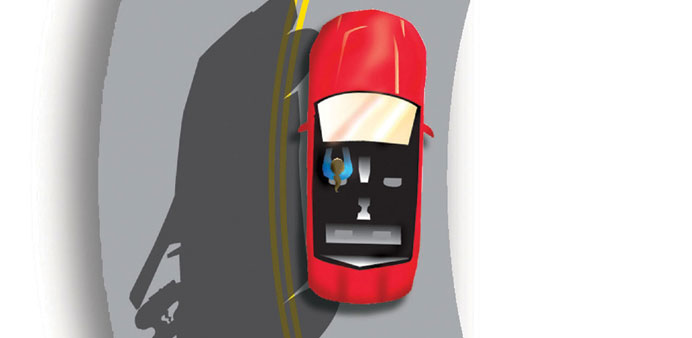Dr Luisa Dillner/London
Driving when you are drowsy can be as dangerous as having a few drinks, says the American Academy of Sleep Medicine. Which is a worry, because a recent American Automobile Association Foundation for Traffic Safety report found that 10% of US drivers admitted falling asleep behind the wheel, while a 2011 UK survey of 1,000 drivers by Brake, the road safety charity, found that one in eight drivers had nodded off for up to 30 seconds.
Drowsiness, like alcohol, makes you less alert, slows your reaction times and means you are more likely to have an accident even if you don’t actually fall asleep.
About one in five crashes in which a person is killed involves a drowsy driver. Driving while drowsy usually occurs at high speeds, is most common in men between 16 and 24 years of age and occurs most often between 11pm and 8am. The car typically veers off the road and the driver isn’t alert enough to brake.
It would seem we are a bit too relaxed about driving when tired. Shift workers, people on medications that cause sleepiness and anyone who is sleep deprived (as a new parent, I drove with my fingernails digging into my hands to keep myself awake) should realise that they could be drowsy drivers. There are obvious symptoms of tiredness such as yawning, but other big clues that you should pull over include being unable to recall the last few miles, missing road signs, drifting out of your lane, getting too close to the car in front or finding it hard to maintain your speed and needing more effort to keep your head up. If you do feel sleepy you should pull over immediately or, if you’re on a motorway, as soon as it is safe to do so.
The Royal Society for the Prevention of Accidents in the UK says that two cups of caffeinated coffee and a 15-minute nap is the most effective way to stop feeling sleepy. Turning on the radio, opening the window or asking a passenger to say something interesting won’t wake you up sufficiently.
Driving is best done during normal waking hours; in particular, avoid driving between midnight and 6am, when you are naturally sleepy. Plan your journey so that you have a break for 15 minutes every two hours – ideally getting out of the car – and don’t do a long drive after you have worked a full day.
If your drive is monotonous, especially if on a motorway, it is even more important to get a good night’s sleep (around seven hours). Whenever possible, avoid driving alone and, if on a long trip, try to share the driving.- Guardian News and Media
♦ Dr Luisa Dillner, a writer and doctor, heads BMJ Group Research and Development

